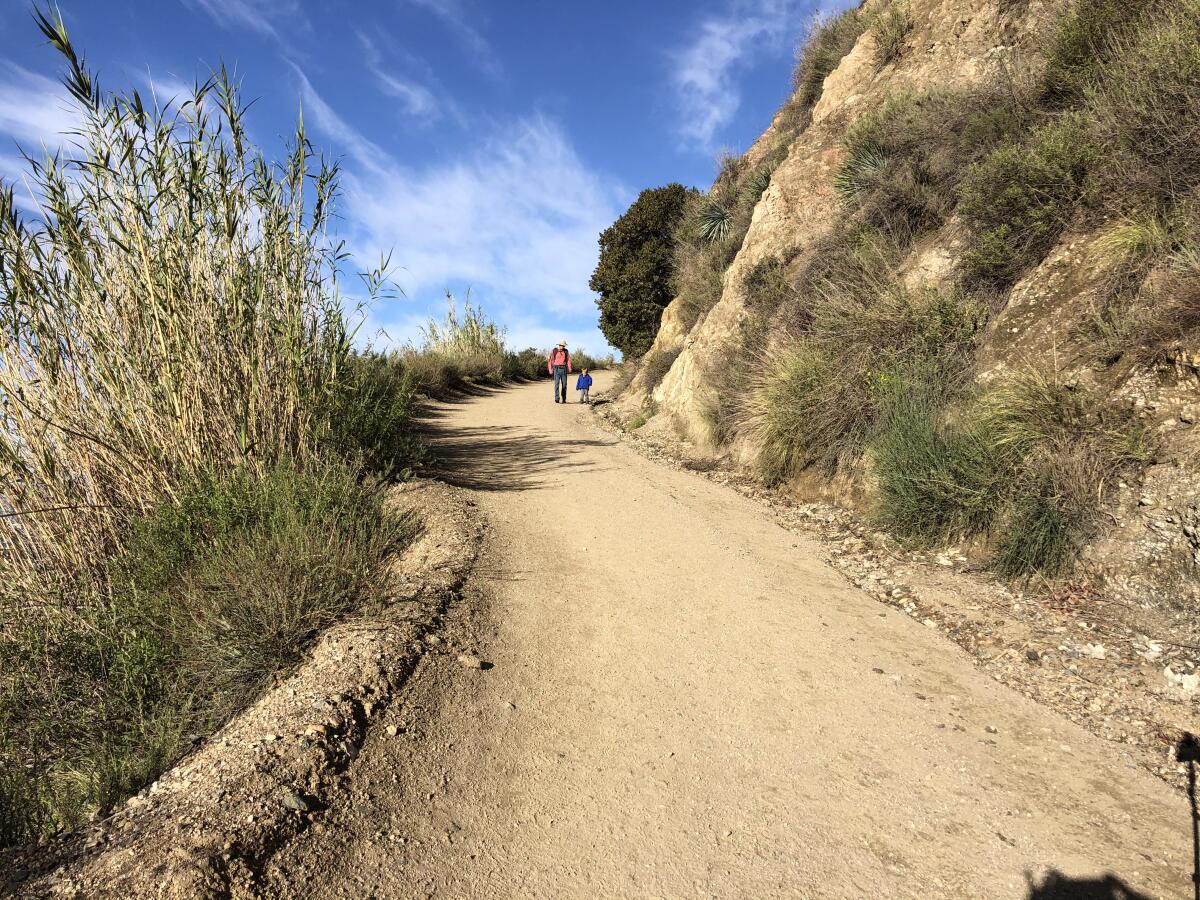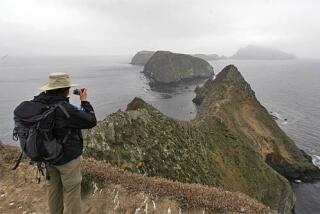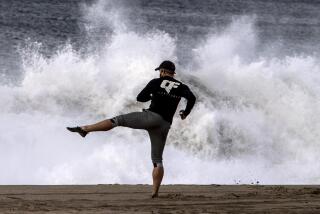Is it safe to walk, run or bike outside right now? Yes, and this is how

You may not be able to hike or run on your favorite trail or beach right now, but that doesn’t mean you should avoid going outside altogether. Just stay closer to home when you do. “Do not go into other neighborhoods for recreation,” Dr. Scott Morrow, health officer in San Mateo County, said in a statement. “This increases the risk of virus spread.”
Most national parks and California state parks and beach have closed or scaled back vehicle access, parking and services, though natural areas remain open at some sites, L.A. parks, beaches and trails are for the most part closed or have restricted access. Group gatherings for any outdoor activities are on the “don’t do” list.
As a veteran hiker in L.A., here are my common-sense rules for staying safe when you go outdoors during the coronavirus crisis. And stay on top of updates to make sure you know the latest rules.
1. Don’t go out if you are sick. Period. Even if it isn’t the novel coronavirus, no one who has any symptoms of any illness should be out in public — even if you are outdoors.
2. Bicyclists, trail runners and hikers need to make sure they stay at least 6 feet away from other people — whether it is a friend or people you don’t know. No exceptions. Tip: I hold a walking pole horizontally as a measure of how far others have to stay away from me. It works.
3. Don’t go outdoors with your BFFs. As much as you want to be with your workout buddies, gatherings are a no-no. The mayor’s most recent rules ban group activities, indoor and outdoors.
4. Stick to wide, unpaved fire roads and avoid single-track trails. Narrow trails don’t allow you to pass others and maintain the proper social distancing (6 feet). Dirt fire roads allow you to spread out and easily avoid others. This applies to city street too; make sure you are walking along wide streets.
5. Don’t be a weekend warrior. This isn’t the time to go deep into the back country or somewhere you aren’t familiar with. If you get hurt or lost, you may need emergency and/or medical services, which would unnecessarily burden people and services dealing with the coronavirus crisis.
6. Steer clear of national parks. Even though some trails and other natural areas are open, services and operations are very limited if you run into trouble. Death Valley has closed all restrooms and parking lots (except Panamint Springs Resort); Joshua Tree is closed to all cars. If you run into trouble, you’re on your own.
Where should you go?
Find less-crowded areas. Stay close to home and go out at hours when others are less likely to be there. You need to follow the 6-foot rule.
Map out a route in your neighborhood. Create a route close to home by using free online tools (I like Map My Run) and then follow it. Add a mile or so a day if you are using your newly found time at home to train a bit more. Stick to roads and wide paths.
Lastly, if you see crowds, leave. The spirit of the safer-at-home order is to decrease contact with others. Don’t violate the order and risk exposure to the virus by braving the crowds at your favorite place to walk. It will be there when we’re on the other side of this.
More to Read
Sign up for The Wild
We’ll help you find the best places to hike, bike and run, as well as the perfect silent spots for meditation and yoga.
You may occasionally receive promotional content from the Los Angeles Times.







